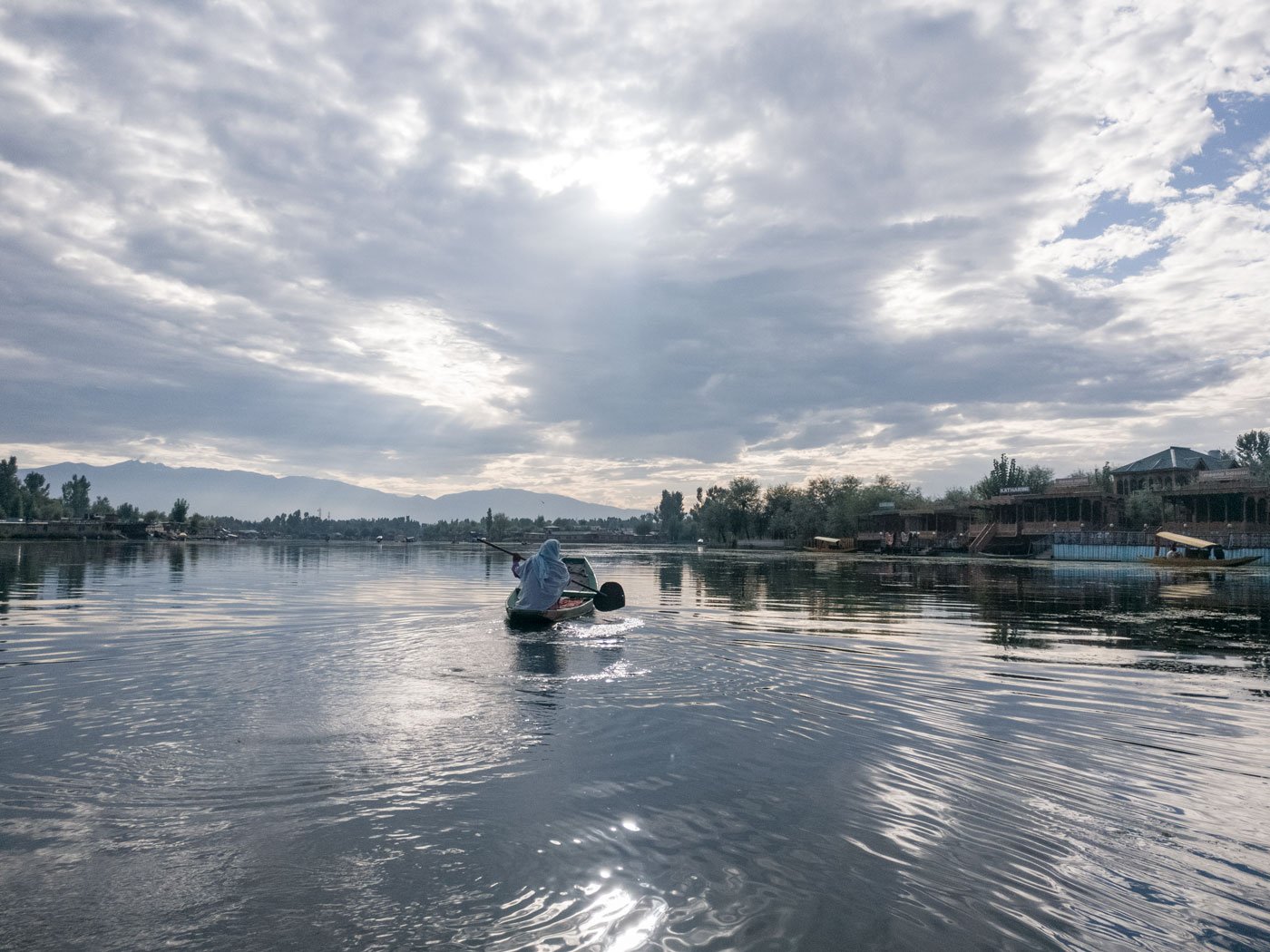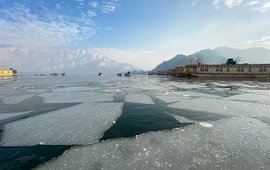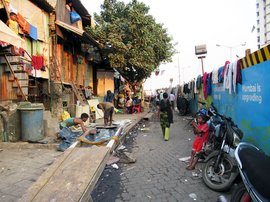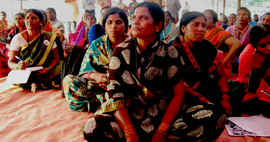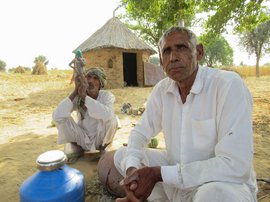"The lockdown has ruined us,” says Abdul Majid Bhat. “The last tourist came to my shop in March.”
At the three shops Bhat runs in Srinagar’s Dal Lake, selling leather goods and local handicrafts, no customers have stopped by even after the lockdown began easing by June. And it’s now been over a year of an unrelenting lean period that began with the abrogation of Article 370 in Kashmir on August 5, 2019.
The impact of both on tourism, which many like Bhat count on for their income, has been crushing.
“Just when the tourist season was to start after that 6-7 month shutdown, this corona lockdown started,” says 62-year-old Bhat, a resident of the Batapora Kalan area in Dal Lake, and a respected elder. He is also the president of the Lakeside Tourist Traders Association, which, he estimates, has around 70 members.
His words are echoed by many in Srinagar who depend on the lake’s tourism economy – shikarawalas rowing the yellow taxi boats, hawkers, shop owners – for whom the last 12 months have been anything but the picturesque Dal photos of tourism brochures. (See Srinagar's shikaras: still waters run deep losses )
Among them is 27-year-old Hafsa Bhat from Nehru Park, who had started a small business from home before the coronavirus lockdown began. After a 24-day training course at the Jammu and Kashmir Entrepreneurship Development Institute, Hafsa, who is also a school teacher in Srinagar, had received a low-interest loan of Rs. 4 lakhs from the institute. "I bought stock of dresses and clothes. I had sold just around 10-20 per cent of the stock when the lockdown was announced. Now I am struggling to pay the instalments,” she says.
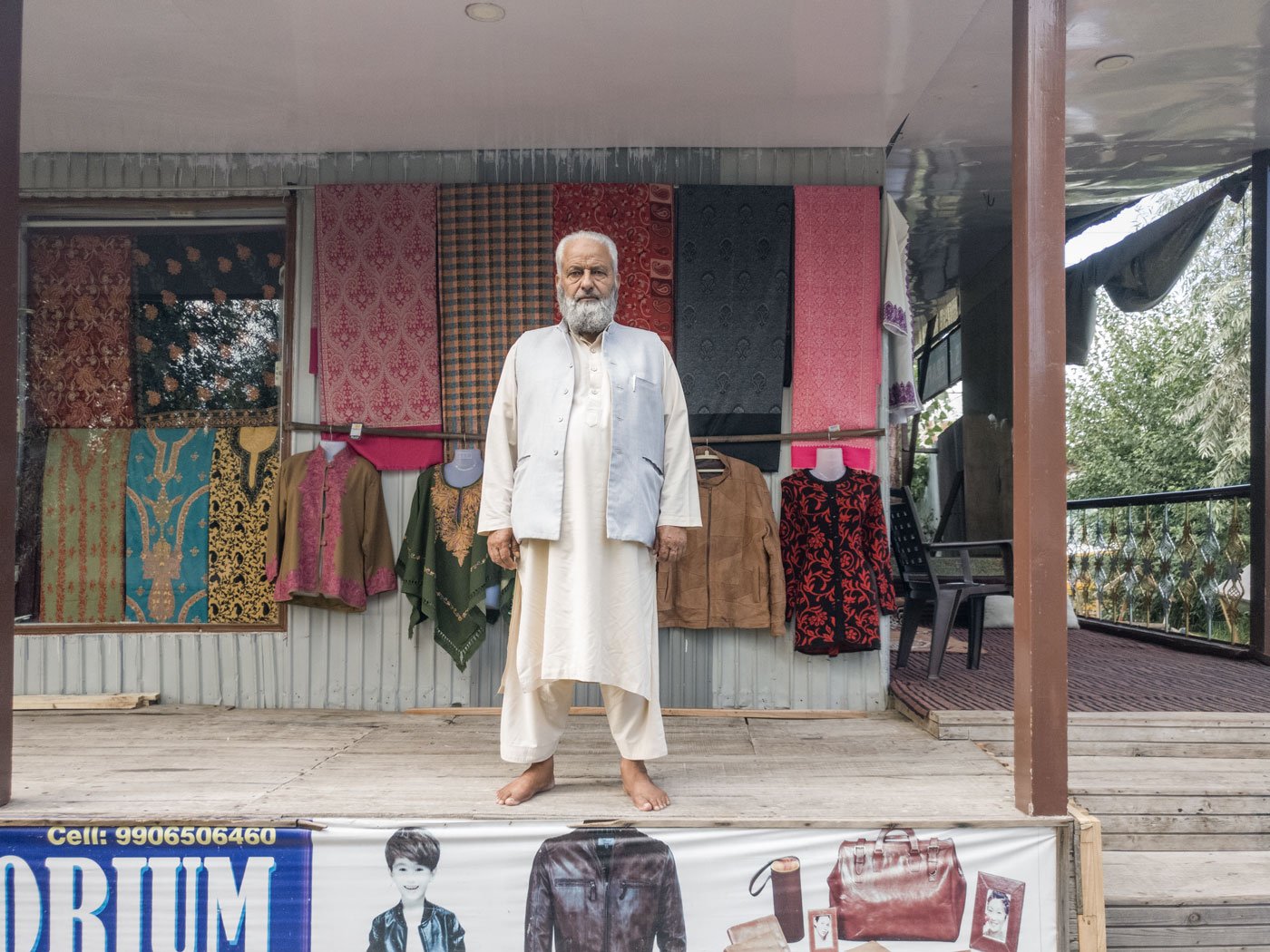
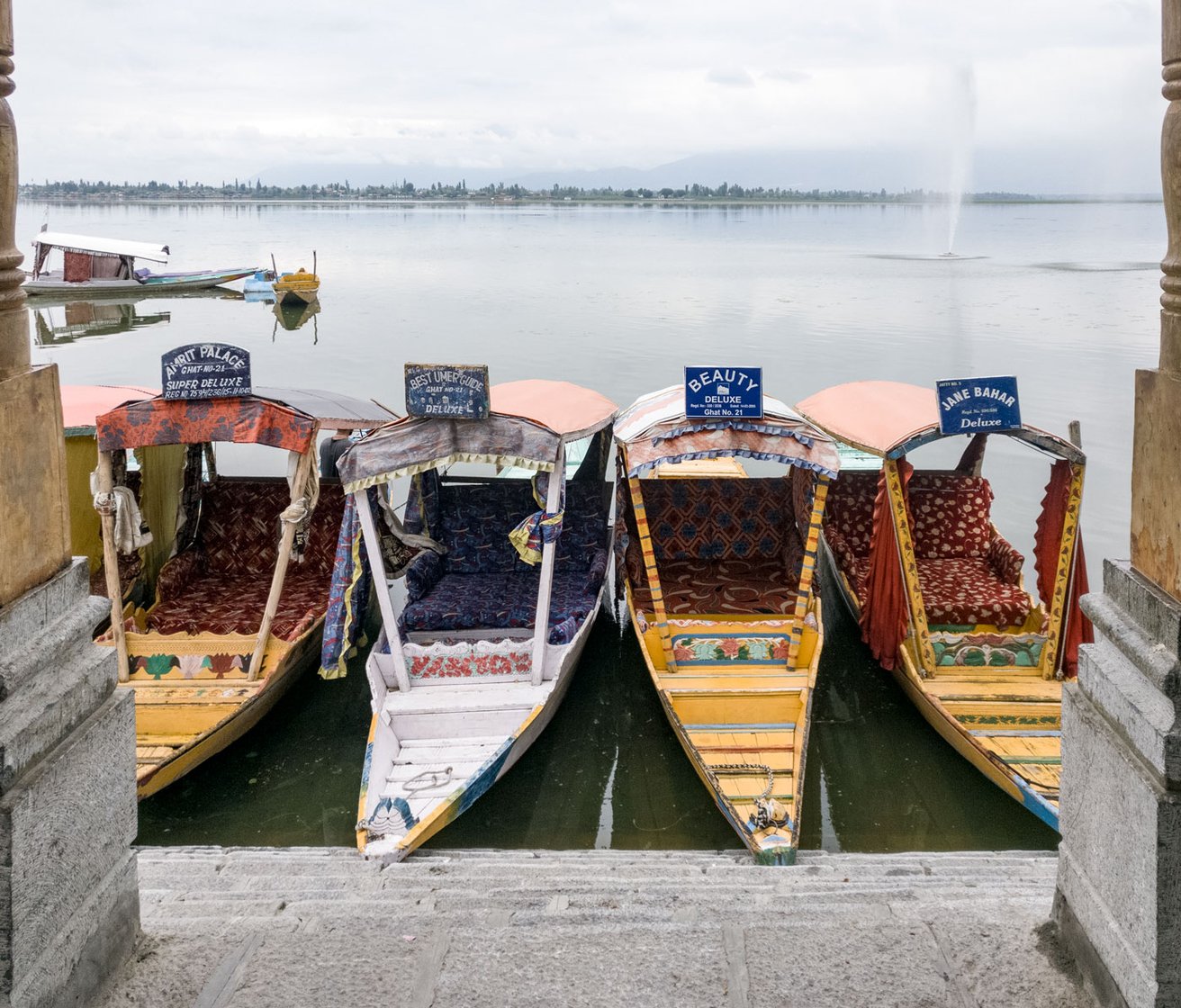
'Just when the tourist season was to start after that shutdown, this lockdown started', says Majid Bhat, president of the Lakeside Tourist Traders Association
In the same Nehru Park area – one of the many islands within the 18 square kilometre Dal Lake, lives 70-year-old Abdul Razzaq Dar. He rows a shikara from one of the ghats along Boulevard Road in Srinagar. “ Itni kharab haalat nahi dekhi aaj tak [I haven’t seen such a drastic situation ever],” he says.
"The corona lockdown killed whatever was left of the tourism business,” he adds. “We are going backwards. We are worse off than we were last year. I have four people in the family who are dependent on this shikara . We are facing ruin. What we used to eat for one time, we are now eating for three times. How will the shikara run unless the shikarawala eats?"
Sitting next to him, Wali Mohammad Bhat of the Abi Karapora mohalla in Nehru Park, who in his 60s, says, “The last one year has been very troublesome for all of us. By issuing an advisory before the abrogation of Article 370 last year, they pushed out the tourists and everything closed down. And then the coronavirus lockdown came and it has devastated us.” Bhat is president of the All J&K Taxi Shikara Owners Association, which, he says, covers 35 big and small ghats in Dal and Nigeen lakes, and has 4,000 registered shikarawalas .
He estimates their collective losses to be in crores. In peak season, Bhat says, each member of his association would make at least Rs. 1,500-2,000 a day. “A shikarawala used to earn enough money to last a whole year just during the four-month season [April-May to August-September], and it has been taken away by the coronavirus lockdown. Whether marriages or other expenditures, everything used to depend on the income earned during the [tourism] season."
To try and bridge these lean months, some of the shikarawalas ’ families have taken to wage labour, as have Abdul Razzaq Dar’s two sons, who are in their 40s. “They used to work as shikarawalas too, but after seeing the situation I told them to join the de-weeding project," Dar says
He is referring to the work carried out by the J&K Lakes and Waterways Development Authority. De-weeding tasks are available seasonally, when weeds sprout up in the absence of shikaras rowing across regularly. Machines too are used to remove the weeds, and at times labourers are employed through local contractors.
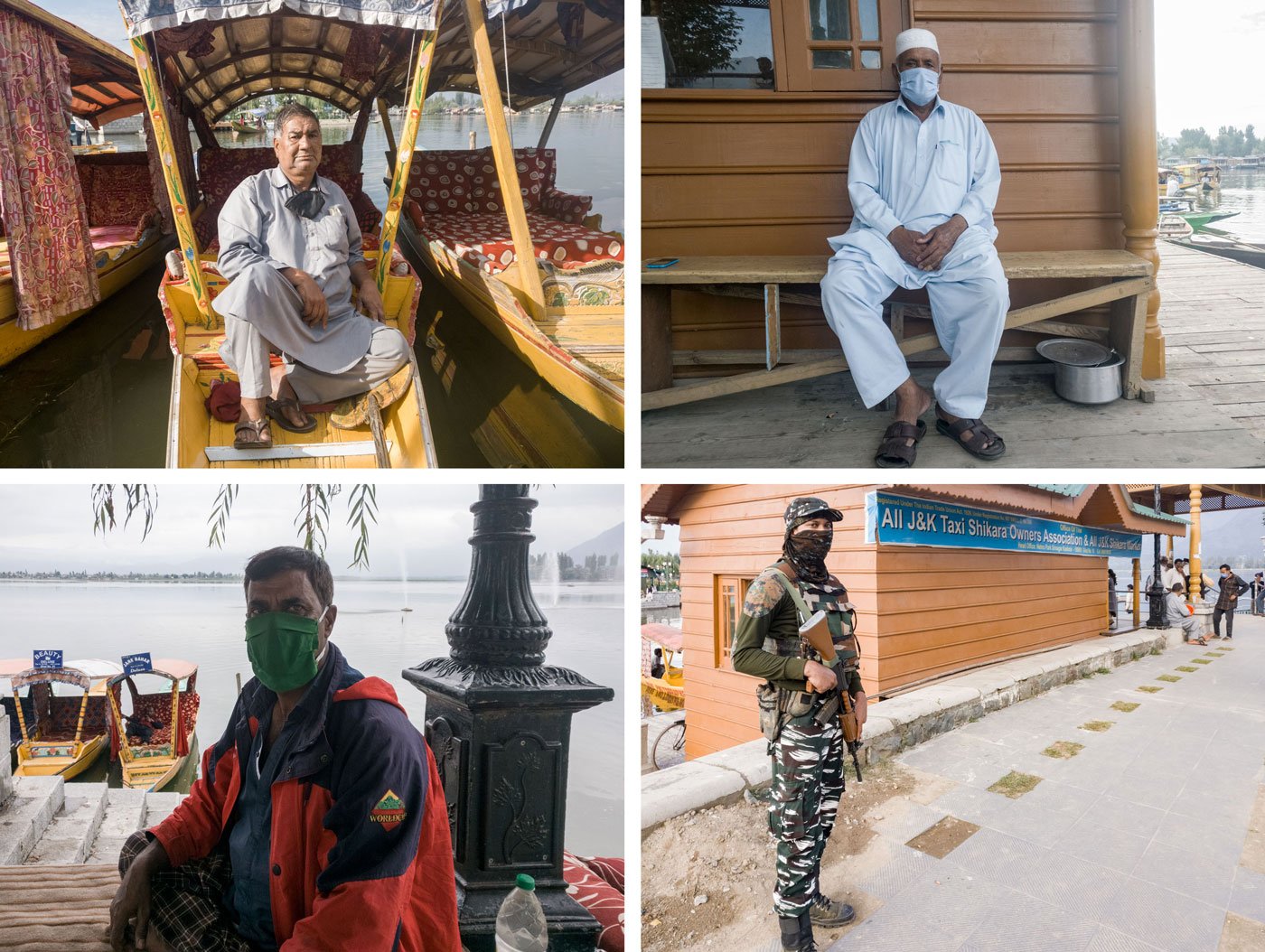
' The corona lockdown killed whatever was left of the tourism business', says Abdul Razzaq Dar (top left). The advisory asking tourists to leave after the abrogation of Article 370 last year, and then the coronavirus lockdown, have been devastating, say Wali Mohammad Bhat (top right) and Mohammad Shafi Shah (bottom left)
That’s the work 32-year-old Shabbir Ahmad Bhat of Nehru Park in Dal Lake has also taken up since mid-July. He used to run a shop selling shawls and other Kashmiri handicrafts in neighbouring Ladakh during four months in summer, earning around Rs. 30,000 a month. He would go to Goa or Kerala during the winter to sell the same items. When the lockdown was announced on March 22, he had to return home. Left without any work for months, he joined the lake’s de-weeding project along with his younger brother, 28-year-old Showkat Ahmad.
“We take out weeds from Dal Lake near Char Chinari and carry them to the roadside where they load it in trucks and take it away,” Shabbir says. “We are paid 600 rupees per trip, for two people, of which 200 is the rent for the big cargo boat we row. It is up to us how many trips we can make ferrying the weeds, but at most only two trips are possible. It is a lot of hard work to pull out the weeds from the water. We leave home early morning, around 6 a.m., and by afternoon 1 p.m. we are back. We try to make two trips so that we can make some money."
Before this, Shabbir says, he had never done such hard physical labour. His family owns a few small scattered patches of farmland on islands in the lake, but it’s his father, mother and one of his brothers who tend to their few crops.
"After the lockdown began, we did not work for a long time,” Shabbir says. “When there were no options to earn a living, I started this de-weeding work in Dal. We prefer our tourist trade over this physical labour because that’s what we have done all our lives. But since there is no tourism, this was our only remaining option to survive. Now if we can just manage our family expenditures, that is a big deal.”
His family, Shabbir says, has had to cut household spending by half. “We can’t use our stock [of shawls, leather bags and jackets, costume jewellery and other items] – nobody will buy it from us, and it is of no use at the moment. Besides, we have a lot of debt [especially for stock bought on credit].”
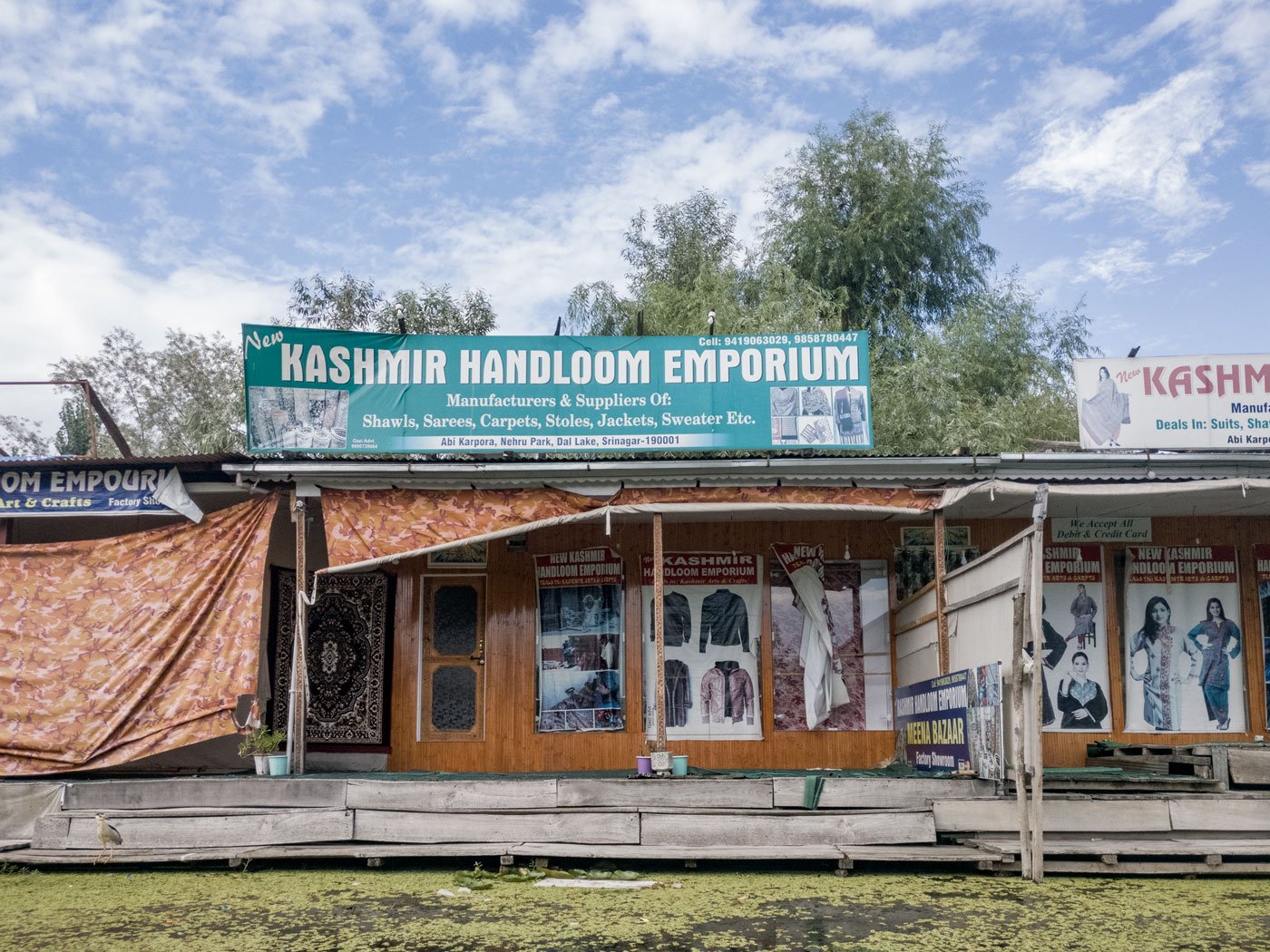
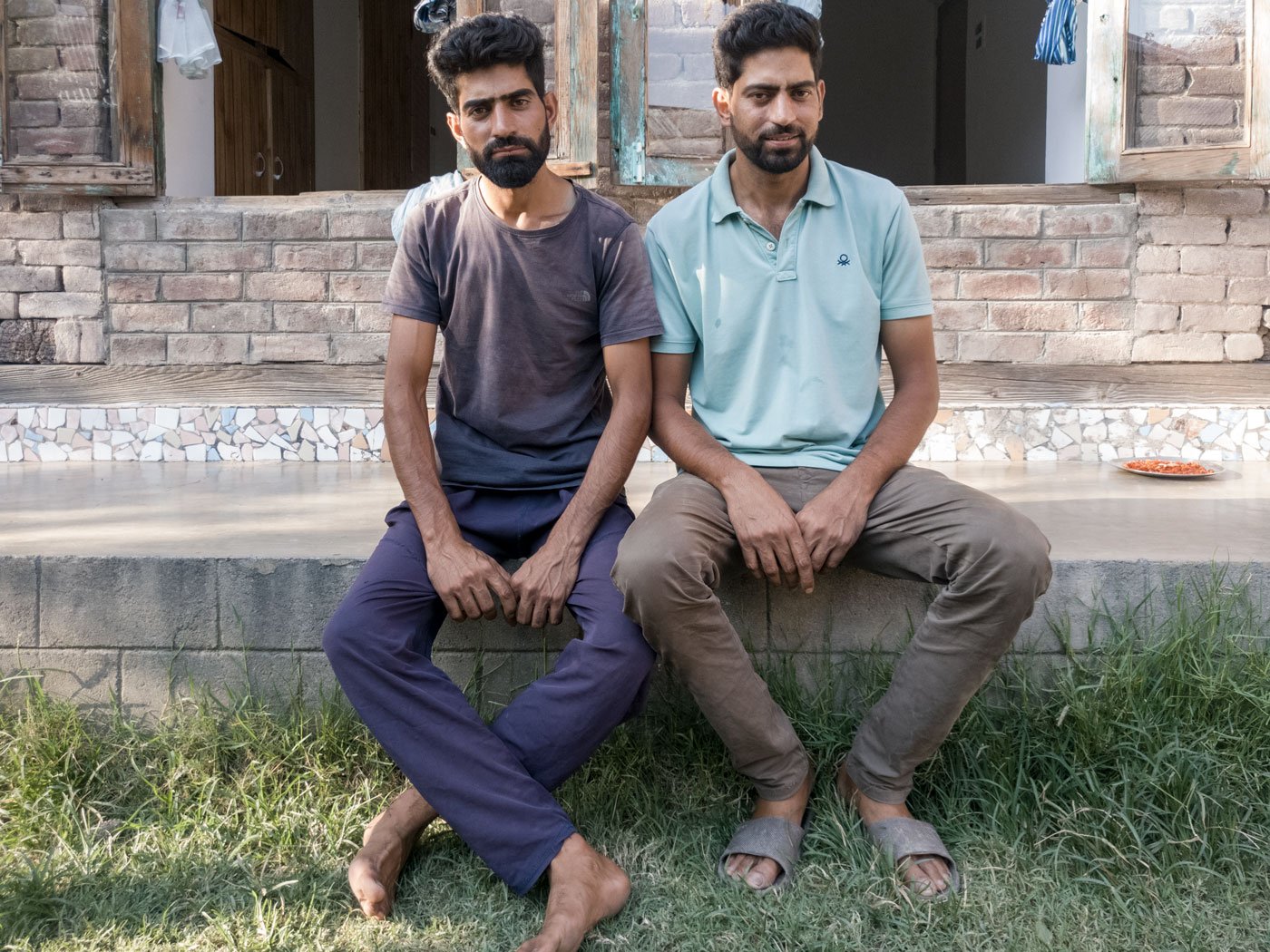
'In Dal, except tourism, we can't do much,' says Shabbir Ahmad (right), now working on the lake’s de-weeding project with his brother Showkat Ahmad (left)
Shabbir wants the government to understand the struggles the people living on the Dal’s islands. "If they could come and do a survey, they’ll see the difficulties here. There are a lot of families who don’t have work. Some have sick family members or don’t have anyone who can earn. If the government could come and see and give funds to such people, that would be a big relief.”
He contrasts the situation of those living in the Lake with residents of Srinagar city, where he says options are not so limited. “In Dal, except tourism, we can't do much. At most we can sell vegetables [in boats, rowing from one island mohalla to another]. We can’t do the jobs that people in the city might find, or set up a cart to sell things. If tourism starts again, we will have work, but at present we are struggling."
Selling vegetables by boat has not been easy either. Andleeb Fayaz Baba, 21, a BA student from Batapora Kalan, says, "My father is a farmer. He did not earn for months because he was not able to move out of the house. All the vegetables were wasted, he could deliver very few to his customers. It has affected our family badly, my father is the lone earning member.” Andleeb’s younger brother and two sisters are all students, her mother is a homemaker. “We had to pay the complete school fees, my college fee as well. And if there is an emergency, we have to cross the lake to reach the [Srinagar] shore.”
Even those who live in the city but depend on Lake tourism, have faced severely uphill months. Among them is Mohammad Shafi Shah of the Shalimar area of Srinagar. It’s around 10 kilometres from the ghat where he has been rowing shikaras for around 16 years during tourism season, earning, on good days, around Rs. 1,000-1,500. But since last year, there haven't been many tourists to ferry in his shikara . “Ever since they removed Article 370, we have been out of work, and it’s become worse since the coronavirus lockdown,” he says.
“I used to live in Dal, but the government moved us out,” he adds, referring to a relocation drive. “I come here daily from Shalimar [hitching a ride with someone]. In winter I went outside for work [to Goa, to sell handicrafts on beaches] but was stuck for 50 days after the lockdown and business dried up. I came back at the end of May and was in quarantine for a week…"
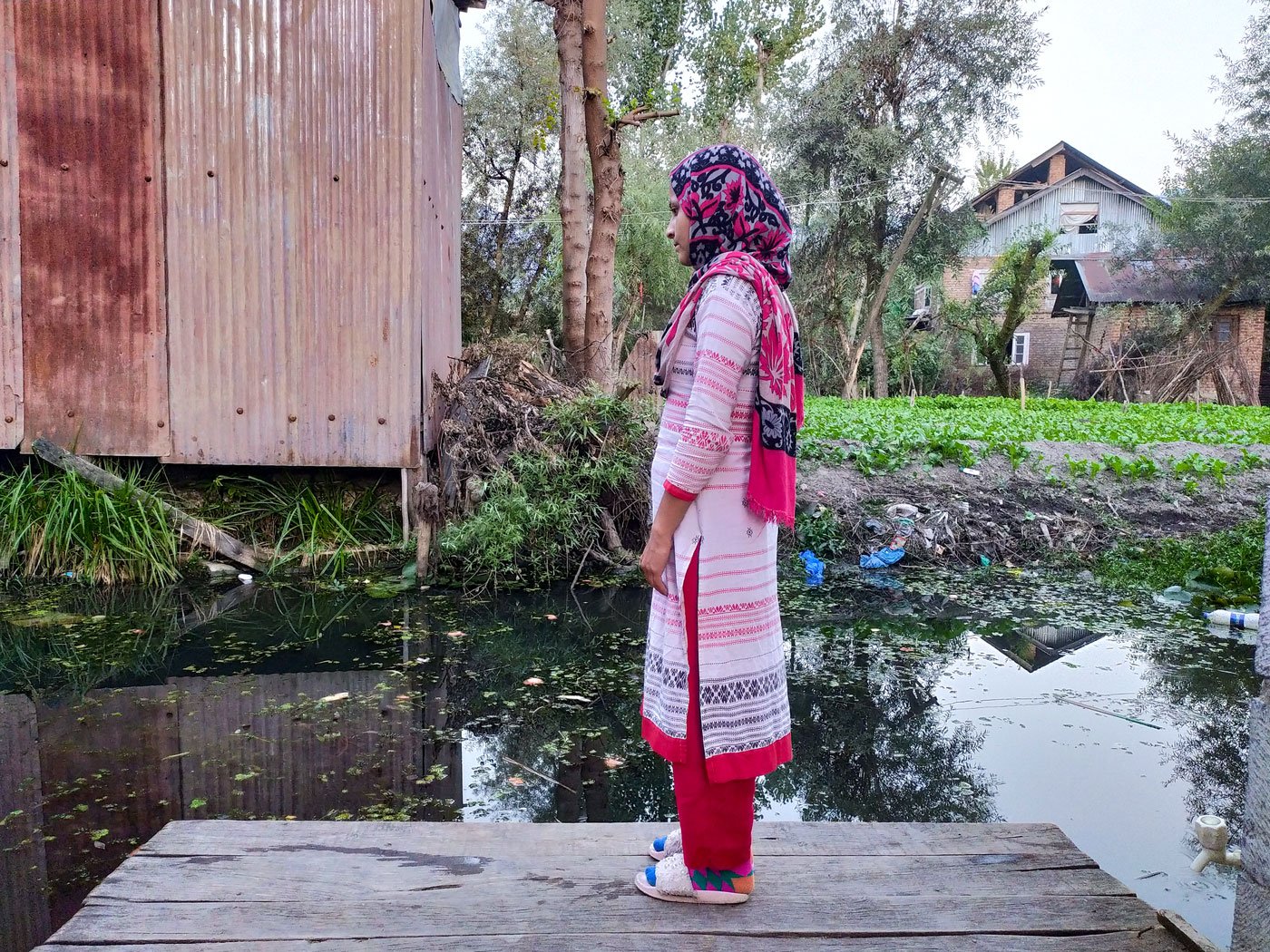
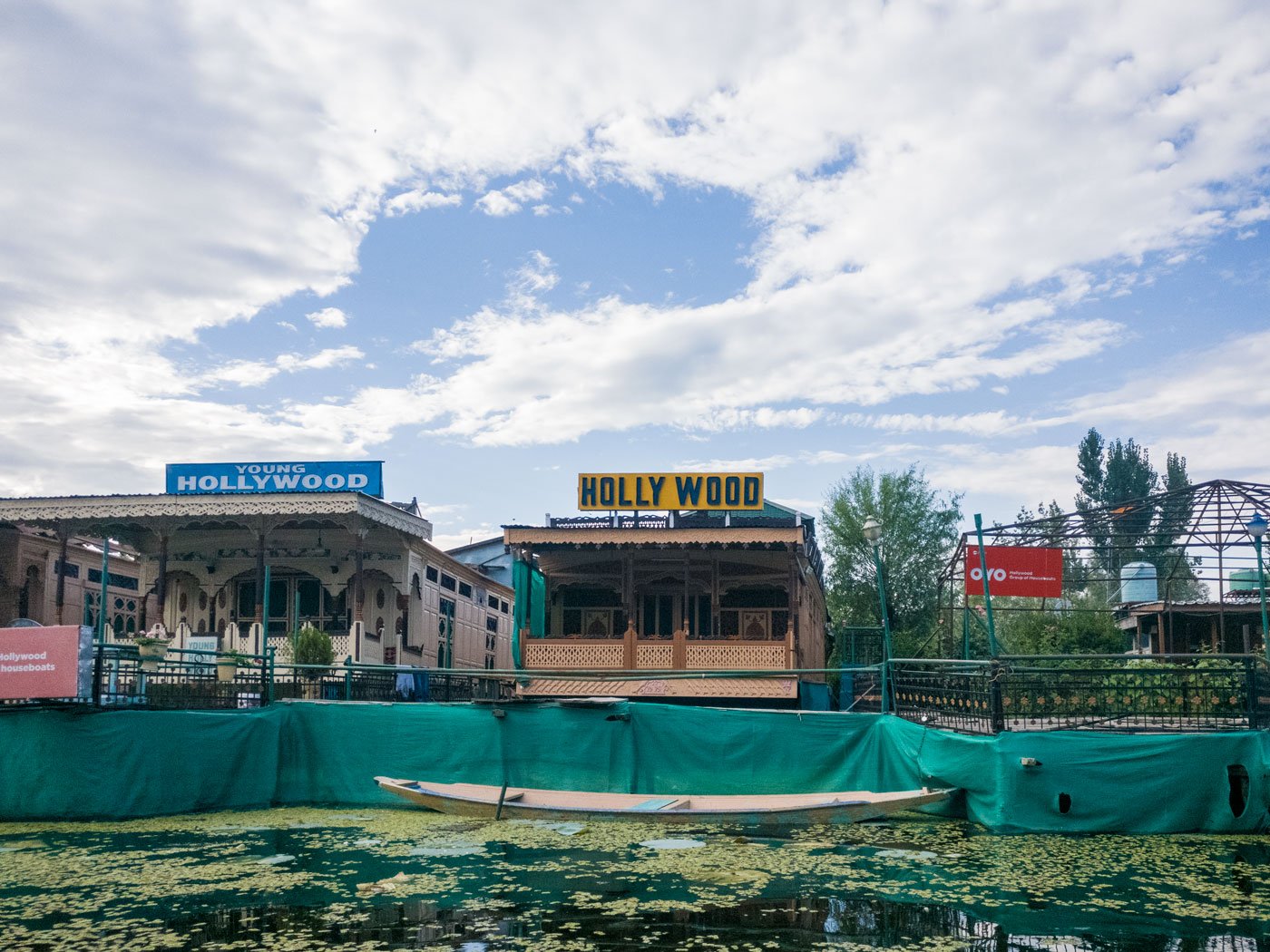
Left: Andleeb Fayaz Baba's father has been unable to sell vegetables by boat for months. Right: The houseboats have been empty this tourist season
On Dal Lake, the shikarawala s at each ghat form a union – all of these come under the All J&K Taxi Shikara Owners Union – and pool the money earned by each shikara. They then divide the income equally among the members. The ghat where Shafi works has about 15 shikaras .
"If a local comes, which happens rarely, we take them out in the shikara and earn 400-500, which then gets divided by 10-15 people of this taxi stand, and it comes to Rs. 50. What will I get with that? We don’t have any other means besides this shikara . How will my house run? Won't it be ruined?”
Shafi says he had submitted his shikara taxi license to the tourism department because he heard that the government would give each shikarawala Rs. 1,000 every month for three months, but he didn't receive anything.
Across Boulevard Road, inside the lake, Abdul Rashid Badyari, who is in his 50s, is reclining on the front porch of his empty houseboat, the ‘Acropolis’ – it’s got hand-crafter wooden walls, plush sofas and a roof carved in the traditional, ornate khatamband style. It’s not seen a customer in over a year.
“I have been running a houseboat since I entered adult life. Before me, my father and grandfather used to do the same and I inherited this boat from them,” Badyari says. “But everything is shut for us, no customer has come since the two lockdowns. My last customer came before Article 370. The coronavirus lockdown didn't affect me much since there were no tourists anyway. Everything is in loss, even the property is rotting away."
Badyari’s five-member family used to depend on the income from tourists staying in the houseboat. “I would charge 3,000 rupees per night. My boat used to be full during the season months. Hawkers and others also made sales from the tourists staying in my houseboat, and shikarawalas would earn by ferrying my customers around the lake. All of them have lost work now. I have been spending from whatever savings I had, and have taken a loan.” Badyari had one employee who looked after the houseboat, but, unable to pay his salary, he had to ask him to leave. “The future doesn't look hopeful, I don't want my son to do this work,” he says.
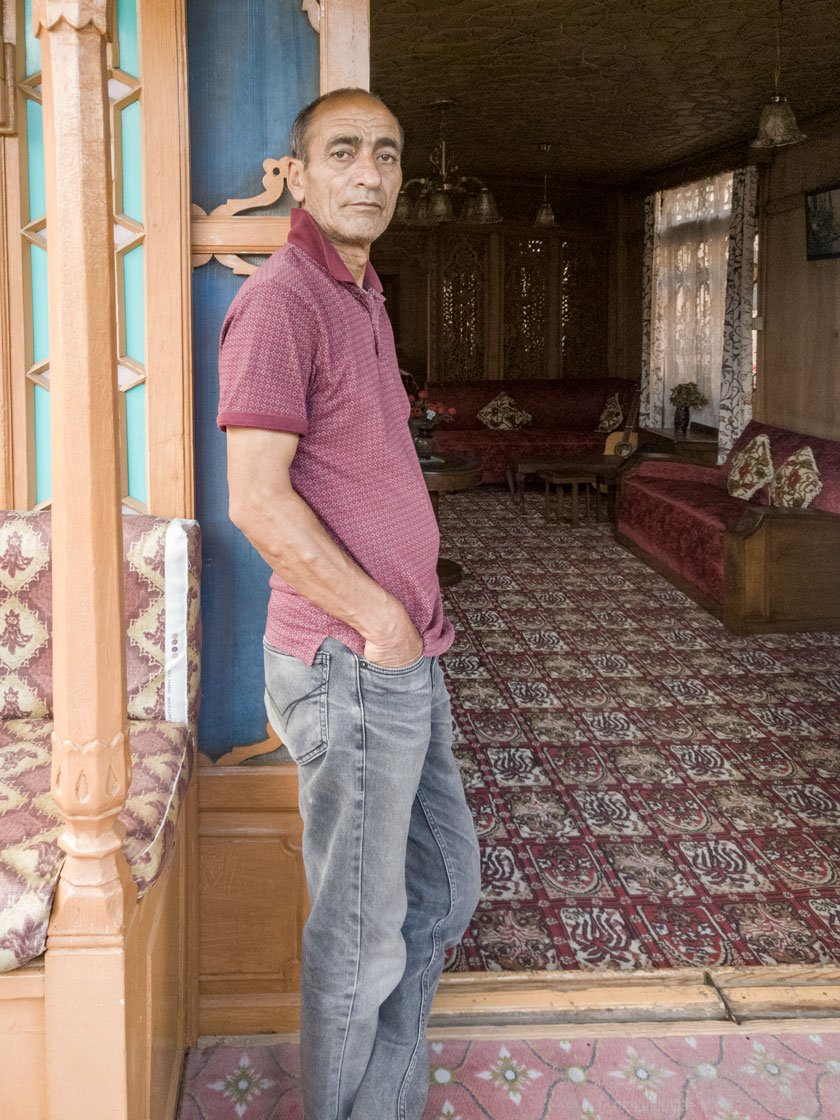
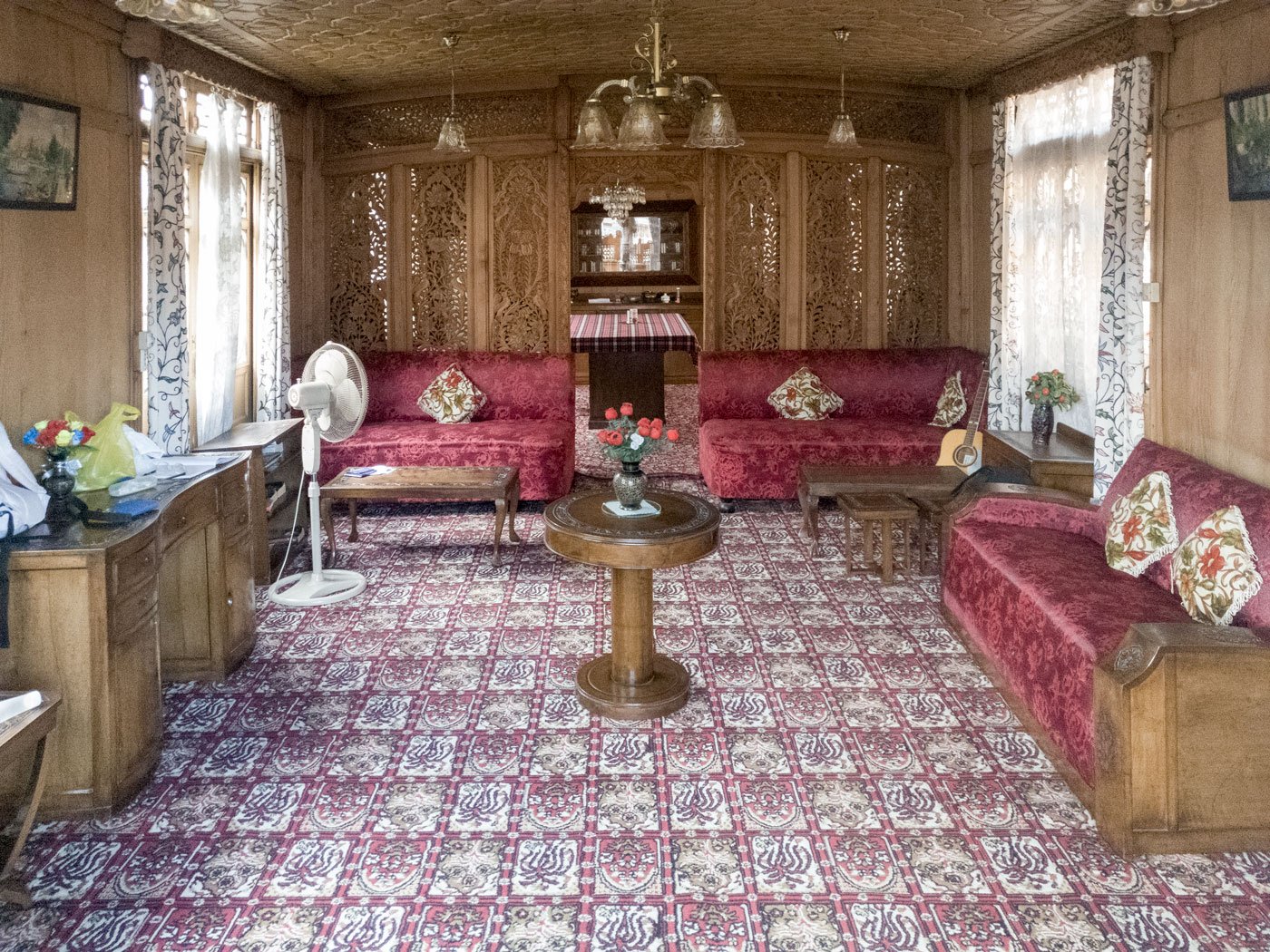
'Everything is in loss, even the property is rotting away,' Abdul Rashid Badyari says, referring to his ornate houseboat
Over these months, some have tried to help the struggling shikarawalas and traders; among them is Abdul Majid Bhat (president of the Lakeside Tourist Traders Association). "We had a trust of around 6 lakh rupees for emergencies for members of our Association,” he says. “We gave it away to those who were weaker than most so they can run their houses.”
Bhat used to employ 10 persons seasonally, he says, at a salary of Rs. 10,000-15,000 each. “I had to let most of them go because I couldn't afford them,” he says. “I retained a few who were very poor after deciding with my family. We feed them what we eat ourselves. Otherwise, I can't afford an employee. In the past five months I have made sales of less than 4,000 rupees from a few local customers.”
Bhat says he has taken a bank loan to maintain his family and repay debts. “I have to pay interest on that too. My two sons and three nephews work with me [he has two daughters; one is a homemaker, the other helps at home]. My son is a BCom graduate and my conscience didn't allow me to send him for physical labour, but now the situation is such that even he will have to go."
No one from the government, Bhat says, pays attention to the Dal Lake shop owners and shikarawalas . “Nobody came to assess out losses.” Locals, he adds, usually visit to shops in the city, now that the lockdown has been lifted. “But no local comes to a Kashmiri arts shop in Dal. A shopkeeper in Dal is in 100 per cent loss."
In July, Bhat adds, an official from the Directorate of Handicrafts had asked them to submit their registrations online to receive some financial assistance, but nothing happened. “Since then, we have no hope, neither from the state nor the central government.” The long cycle of hartals and curfews have added to the uncertainty, Bhat adds. “I told my children that the future looks very bleak for Dal and for us…”
